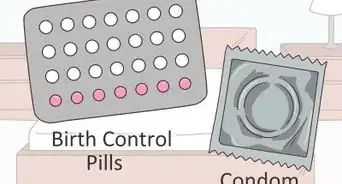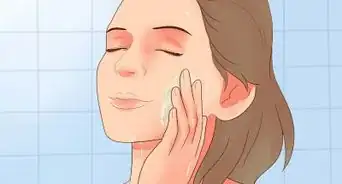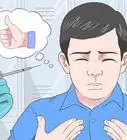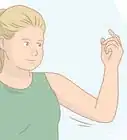X
wikiHow is a “wiki,” similar to Wikipedia, which means that many of our articles are co-written by multiple authors. To create this article, 25 people, some anonymous, worked to edit and improve it over time.
This article has been viewed 42,124 times.
Learn more...
While some people don't mind getting shots, other people find it scary or even terrifying. It's okay to be afraid of needles. You may not be able to get rid of your fear completely, but you can do your best to manage it.
Steps
-
1Remember that it's okay to be afraid. Everyone is scared of different things, and plenty of people are afraid of shots. That's normal and valid. You're allowed to dislike shots and to not look forward to getting them.
- Courage isn't about feeling no fear. It's about being afraid, but being willing to do it anyway.
-
2Remind yourself why you are getting this shot. You're allowed to hate the experience of getting a vaccine. Think about why it's worth it, and tell yourself what makes this vaccine important. Here are some example reasons:[1] [2]
- "I have a busy life. Getting a flu shot will reduce my chances of getting sick. This way, I'll have more time to spend on things that matter to me."
- "I don't want to live with the threat of lethal meningitis hanging over my head. One hour of stress is better than a lifetime of risk."
- "Vaccinated kids have better test scores.[3] [4] I want to be one of them."
- "Rabies is almost always fatal. Getting this shot will be one way to help make sure I can live a long and healthy life."
- "Needles are awful, but not nearly as awful as going to the hospital due to serious illness. By getting this one shot now, I'm protecting myself in the future."
- "My immunocompromised brother could get seriously ill if he got the flu. By getting the shot, I'm not just helping myself, but seriously reducing the risk of him catching it from me. Doing this scary thing to help my brother makes me a good sibling."
- "This Tdap vaccine will protect my unborn child and help her stay healthy."
- "This vaccine could save my life."
Advertisement -
3Talk to your family or loved ones about how you feel. Find a good listener, and explain that you're nervous about getting a shot. Then, let them know how they can help you (like distracting you, holding your hand, or something else).
- Ask someone to stay with you when you get your shot. Choose a family member or friend who is good at comforting you.
- If you have siblings, they may be willing to comfort you or spend time doing something fun with you.
-
4Plan how to take good care of yourself. Figure out how to care for yourself before your shot, especially if they tend to make you dizzy. Also, make a self-care plan for afterwards. Plan to relax and take it easy, especially if you think you may have a rough time.
- If you often get dizzy after a shot, you should hydrate before your appointment. Bring some water, and a sugary treat (like a cookie) for afterwards.
- Try bringing along, or asking for, a pain cream or anti-itch cream to use right before your shot. These can reduce pain.
- If you have a severe phobia, your doctor may prescribe a small dose of an anti-anxiety medicine (like Xanax) to take before your shot to calm you down. You can take it before you get into the car, or when you reach the office.
-
5Plan a small reward for after your shot. A reward can be something you buy, or it can be something you do. If you live with your family, you can ask them for ideas, and possibly get permission for something special. Here are some possibilities:
- Buying arts and craft supplies, a small toy, a hobby supply, etc.
- Doing a favorite activity, like bowling, hiking, shopping, etc.
- Getting a movie to watch (from the library, a streaming service, or even a store)
- Eating something you really enjoy
- Playing a game with your family
-
6Tell the nurse that you're scared. Nurses have lots of practice giving shots to nervous people, and they've probably handled people who were way more scared then you are. If you say that you're afraid of needles, the nurse can do their best to help you through it.
- Try saying "I'm scared of needles. I'm going to do my best to handle it. I'd really appreciate any help you can give."
-
7Do your best to calm yourself during the shot. Remember, it's okay if you get upset or even cry. Try to focus your attention on something else, if you're able. Here are some ideas you can try:[5]
- Hold hands with your support person. Try talking to them.
- Try box breathing: breathing in for 4 seconds, holding it for 4 seconds, breathing out for 4 seconds, and pausing for 4 seconds. Focus on your breath.
- Try a distraction.
- Consider sucking on a piece of hard candy. Focus on the candy in your mouth.
- Try to relax your muscles, if you can. The more relaxed you are, the less it will hurt.
-
8Follow through on your self-care and reward plan. You may need to lie down. Drink water and eat something sugary if you get dizzy, and take your time recovering. Then follow through with your reward. You handled something really difficult, and you've earned it.
- Be prepared to take it easy for a while.
- Kids might be nervous if they can tell that you had a rough time with your shot. You can tell them that it was scary but you handled it. You can also suggest something they could do for you (like "you could help me by making popcorn for us to share and watching this movie with me" or "you could tell me about your day while I relax") so they feel like they're helping.
-
9Be proud of yourself. Shots are scary, and they can hurt. You did the best you could in a really challenging situation! That's worth congratulating yourself over.
- If it was easier than you thought, remember that. You can reassure yourself by remembering this next time.
Advertisement
Warnings
- Don't drive if you have taken an anxiety medication like Xanax. Instead, have someone else take you to and from the appointment.⧼thumbs_response⧽
- Pain relievers like Tylenol can reduce the effectiveness of a shot. Don't take any during the day of your shot.⧼thumbs_response⧽
- Be cautious about researching vaccines. Some people push anti-vaccination ideas and try to scare you by making up really awful things. (Then they might try to sell you books or "miracle cures" that you don't actually need.) People can write all kinds of things on the internet. Stick to scientific websites only.⧼thumbs_response⧽
Advertisement
References
- ↑ https://www.vaccines.gov/getting/for_parents/five_reasons
- ↑ http://www.adultvaccination.org/10-reasons-to-be-vaccinated
- ↑ https://thoughtscapism.com/2015/04/10/myth-no-studies-compare-the-health-of-unvaccinated-and-vaccinated-people/
- ↑ https://www.ncbi.nlm.nih.gov/pmc/articles/PMC4570928/
- ↑ https://sciencebasedmedicine.org/vaccines-are-a-pain-what-to-do-about-it/
About This Article
Advertisement


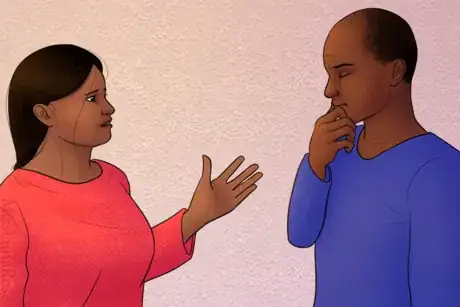
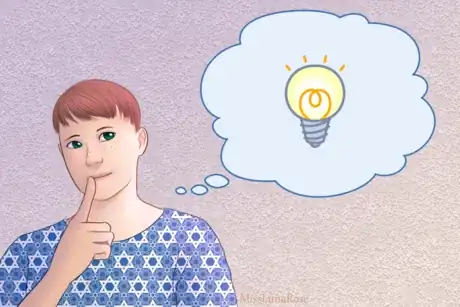

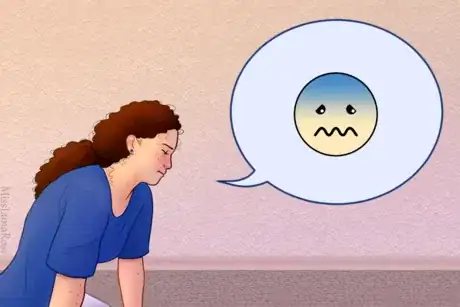






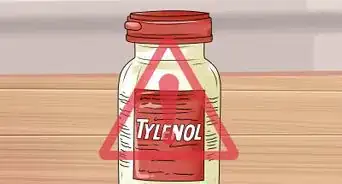
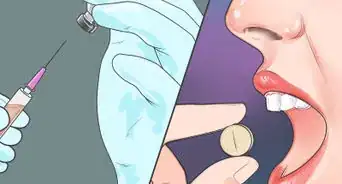
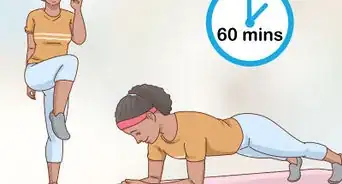



-Step-21.webp)

